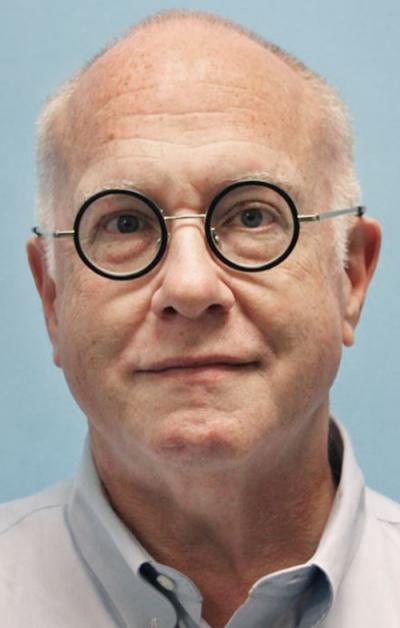

 For all of us at Public Interest Registry, working to remove child sexual abuse content from the Internet isn't just a part of our work; it's our moral duty. As stewards of the .ORG community, addressing the problem head on is the only option compatible with our values. Talking about Child Sexual Abuse Materials (CSAM) is challenging and uncomfortable. It's also far too important, and prevalent, of a problem to ignore. While it's impossible to know exact numbers, online CSAM is a major, rapidly growing crisis.
For all of us at Public Interest Registry, working to remove child sexual abuse content from the Internet isn't just a part of our work; it's our moral duty. As stewards of the .ORG community, addressing the problem head on is the only option compatible with our values. Talking about Child Sexual Abuse Materials (CSAM) is challenging and uncomfortable. It's also far too important, and prevalent, of a problem to ignore. While it's impossible to know exact numbers, online CSAM is a major, rapidly growing crisis.
 Two and a half months ago, shortly after the ICANN66 meetings in Montreal, the ICANN stakeholder community was jolted by the announcement that the Internet Society (ISOC) had entered into an agreement to sell the wholly owned PIR non-profit that holds the .org registry contract. The sale was to be for $1.13B USD to the hastily assembled venture capital company Ethos Capital. The sale was presented as a done deal awaiting approval by the ICANN Board.
Two and a half months ago, shortly after the ICANN66 meetings in Montreal, the ICANN stakeholder community was jolted by the announcement that the Internet Society (ISOC) had entered into an agreement to sell the wholly owned PIR non-profit that holds the .org registry contract. The sale was to be for $1.13B USD to the hastily assembled venture capital company Ethos Capital. The sale was presented as a done deal awaiting approval by the ICANN Board.
 ICANN's repeated betrayals of the public interest have created the conditions for Ethos Capital's proposed purchase of .Org. The growing outrage directed at ICANN is raising questions about ICANN's legitimacy and the wisdom of having entrusted ICANN with oversight over the domain name system ("DNS"). ICANN has shown itself to be out of touch with and unresponsive to the public interest. ICANN now has an opportunity to remember its mission...
ICANN's repeated betrayals of the public interest have created the conditions for Ethos Capital's proposed purchase of .Org. The growing outrage directed at ICANN is raising questions about ICANN's legitimacy and the wisdom of having entrusted ICANN with oversight over the domain name system ("DNS"). ICANN has shown itself to be out of touch with and unresponsive to the public interest. ICANN now has an opportunity to remember its mission...
 Tomorrow EFF, NTEN, Fight for the Future, Demand Progress, and other organizations will hold a rally outside of ICANN HQ from 9-11 am. You know about the rally, and you should all attend this event! Whatever your feelings about the sale of .ORG, you are leaders of the GNSO, the body that makes gTLD policy. This is a gTLD event, and registrants are trying to talk with ICANN, and they are trying to talk with YOU.
Tomorrow EFF, NTEN, Fight for the Future, Demand Progress, and other organizations will hold a rally outside of ICANN HQ from 9-11 am. You know about the rally, and you should all attend this event! Whatever your feelings about the sale of .ORG, you are leaders of the GNSO, the body that makes gTLD policy. This is a gTLD event, and registrants are trying to talk with ICANN, and they are trying to talk with YOU.
 I was glad to join Meghna Chakrabarti on NPR this week for an engaging discussion about Ethos Capital's acquisition of Public Interest Registry (PIR) from the Internet Society, which you can listen to here. I always appreciate an opportunity to answer questions about .ORG, and was pleased to be joined by Andrew Sullivan, President and Chief Executive Officer of the Internet Society, and Esther Dyson, founding chairwoman of ICANN from 1998 to 2000.
I was glad to join Meghna Chakrabarti on NPR this week for an engaging discussion about Ethos Capital's acquisition of Public Interest Registry (PIR) from the Internet Society, which you can listen to here. I always appreciate an opportunity to answer questions about .ORG, and was pleased to be joined by Andrew Sullivan, President and Chief Executive Officer of the Internet Society, and Esther Dyson, founding chairwoman of ICANN from 1998 to 2000.
 Private equity firm Ethos Capital's attempt to take control of .org, the Internet domain that's home to most of the world's non-profit and public-benefit organizations, has triggered an interesting crisis in Internet governance. The Internet Corporation for Assigned Names and Numbers, or ICANN, is the body responsible for regulating the global domain name industry. For the first time since oversight responsibility over ICANN was passed from the United States National Telecommunications and Information Administration...
Private equity firm Ethos Capital's attempt to take control of .org, the Internet domain that's home to most of the world's non-profit and public-benefit organizations, has triggered an interesting crisis in Internet governance. The Internet Corporation for Assigned Names and Numbers, or ICANN, is the body responsible for regulating the global domain name industry. For the first time since oversight responsibility over ICANN was passed from the United States National Telecommunications and Information Administration...
 When .org prices rise, who suffers – nonprofits or speculators? Will Ethos Capital raise prices more aggressively than ISOC would? Vint Cerf attributed concerns about higher prices to speculators: "Of course, companies that hold domain names in the tens of thousands for speculative purposes might find such increases more troubling, but I don't have much sympathy for that business model in the context of the organizations the .org brand is intended to serve."
When .org prices rise, who suffers – nonprofits or speculators? Will Ethos Capital raise prices more aggressively than ISOC would? Vint Cerf attributed concerns about higher prices to speculators: "Of course, companies that hold domain names in the tens of thousands for speculative purposes might find such increases more troubling, but I don't have much sympathy for that business model in the context of the organizations the .org brand is intended to serve."
 Vint Cerf has posted comments in support of the pending sale of PIR and the .org registry to Ethos Capital. Vint's Comments . Vint is a respected member of the Internet community, and his comments need close attention and careful assessment. Some of his comments have been discussed here earlier. Other comments, posted here and elsewhere, have either supported the sale or raised questions.
Vint Cerf has posted comments in support of the pending sale of PIR and the .org registry to Ethos Capital. Vint's Comments . Vint is a respected member of the Internet community, and his comments need close attention and careful assessment. Some of his comments have been discussed here earlier. Other comments, posted here and elsewhere, have either supported the sale or raised questions.
 Many of my friends in the civil-liberties and Internet-law communities have been criticizing the Internet Society's agreement to sell the Public Interest Registry, which administers the .ORG top-level domain. I'm a free-speech guy, so I support their right to raise all these criticisms. But they often ask me directly – knowing that my track record as an Internet civil-libertarian is longer than most – why as a member of the Internet Society (a.k.a. ISOC) board I decided to join the board's unanimous approval of the deal.
Many of my friends in the civil-liberties and Internet-law communities have been criticizing the Internet Society's agreement to sell the Public Interest Registry, which administers the .ORG top-level domain. I'm a free-speech guy, so I support their right to raise all these criticisms. But they often ask me directly – knowing that my track record as an Internet civil-libertarian is longer than most – why as a member of the Internet Society (a.k.a. ISOC) board I decided to join the board's unanimous approval of the deal.
 We respect the right of all parties who wish to express a point of view on the Internet Society's sale of Public Interest Registry ("PIR") to Ethos Capital. However, it's important those views are based on facts -- which has not always been the case. Some have expressed concern that for-profit ownership of .ORG will automatically mean .ORG prices will rise dramatically, or that .ORG's principles will change.
We respect the right of all parties who wish to express a point of view on the Internet Society's sale of Public Interest Registry ("PIR") to Ethos Capital. However, it's important those views are based on facts -- which has not always been the case. Some have expressed concern that for-profit ownership of .ORG will automatically mean .ORG prices will rise dramatically, or that .ORG's principles will change.